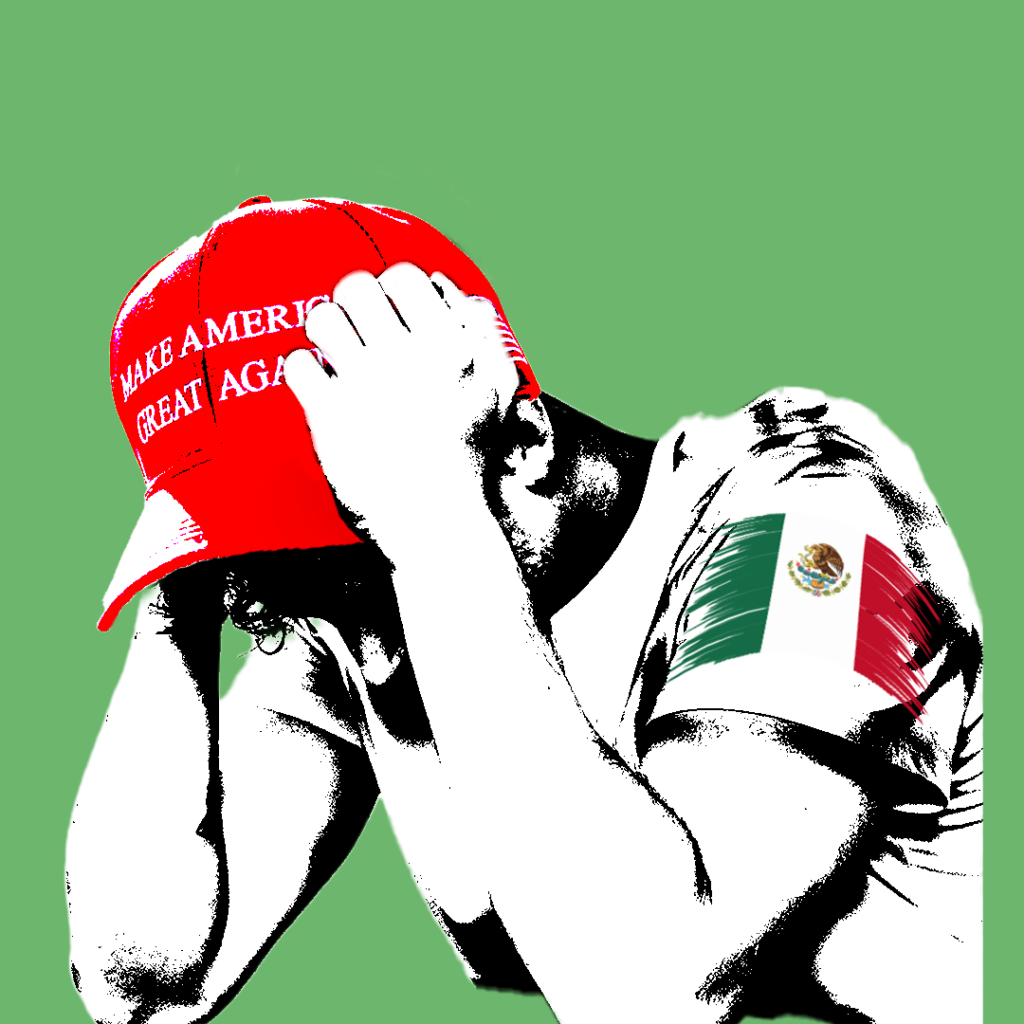
This article was syndicated from The Oracle, the newspaper of the Archer School for Girls in Los Angeles, CA. The original version of the story ran here.
The dust of the 2024 election has settled, and we’re once again drowning in voter analysis.
“Why did Latinos vote this way — did they not know what was coming?”
It’s predictable and, frankly, exhausting. Since President Trump’s inauguration, the Latine community has begun to reconcile its votes for a man who now seeks hasty deportation, and has updated federal policy to allow ICE agents to arrest children at school and families at church. Fear has taken over the community.
It’s tempting to blame disinformation or dismiss conservative-leaning Latine voters as outliers. But the truth is far more disappointing: The Latine community was plenty well-informed and ultimately failed itself.
Latinos are politically fractured, yes, but the reasons go deeper than talking points about religious values, economic anxiety, or immigration. Analysts often frame these factors in a way that obscures the larger picture.
Religion and its sometimes conservative ideologies do play a role, for example, but political views are not simply about faith — they’re tied to broader cultural values like family unity and traditionalism, which resonate deeply for many Latinos. Similarly, economic anxiety isn’t just about job availability or wages. A community’s financial struggles intersect with distrust in political promises, leading to a sense of disillusionment with both major political parties.
Donald Trump’s ability to frame himself as a “change candidate” capitalized on these frustrations, particularly in majority-Latine areas like South Florida and the Texas-Mexico border. His messaging secured 42% of the Latine vote nationwide — the highest ever for any Republican presidential candidate.
Yet the Republican rhetoric that claims to champion “hard work” and “family values” often feels hollow when paired with Trump’s recent orders that weaken worker protections, restrict healthcare access and leave even documented families vulnerable. Many in our community bought into it.
In his campaign, Trump focused on deporting criminals, but now we know that he’s tagging every illegal migrant as a criminal, even if they’re pledging their time to our workforce and paying payroll and sales taxes to the country.
How can we as Latinos not be angry? Angry at a system that doesn’t serve us, angry at candidates who pay us lip service through Election Day, angry at our own community for falling for lies we should recognize by now. The results of this election sting because they’re not just about who won or lost, but about the missed opportunities, the lack of unity and the deep fractures within our community.
These next four years will be a reminder that we can’t rely on either side of the two-party system to fix things. The old story of a disregarded community waiting for a savior — from the left or the right — isn’t working. Republicans cloak harmful policies in the language of family values, and Democrats assume our loyalty without earning it, showing up only when elections are near. We’ve been burned too many times by promises that dissolve after the campaign confetti is swept up. We need a different variety of candidates, but we also need more voter education, community-led initiatives and a commitment to holding leaders accountable.
As much as we need to listen more closely to politicians, we also need them to speak more directly to us. According to a poll from the UnidosUS, “More than 48% of Latino voters [had] not been contacted at all by either party of their candidates.” This lack of outreach across the political spectrum highlights a disconnect between political rhetoric and the realities Latinos face, especially when policies like family separation or the absence of meaningful pathways to citizenship fail to align with promises of inclusion. Claims of economic growth sound insincere when paired with policies that disproportionately harm Latine families.
We need leaders who come from our communities and understand our struggles — not outsiders who show up when it’s convenient. It’s abundantly clear that we have to take ownership of our own future.
History shows we’re capable of this. The United Farm Workers movement, led by figures like Cesar Chavez and Dolores Huerta, fought tirelessly for labor rights that changed lives. These victories weren’t handed to us; they were built by us. We need to make sure our issues aren’t just buzzwords during an election season but prioritized year-round.
We have to fight for what’s ours, because if we don’t, we’ll be left with the same frustrations, the same failures, and the same feeling that nothing ever changes — just with a new election year attached to it.
